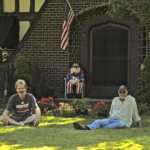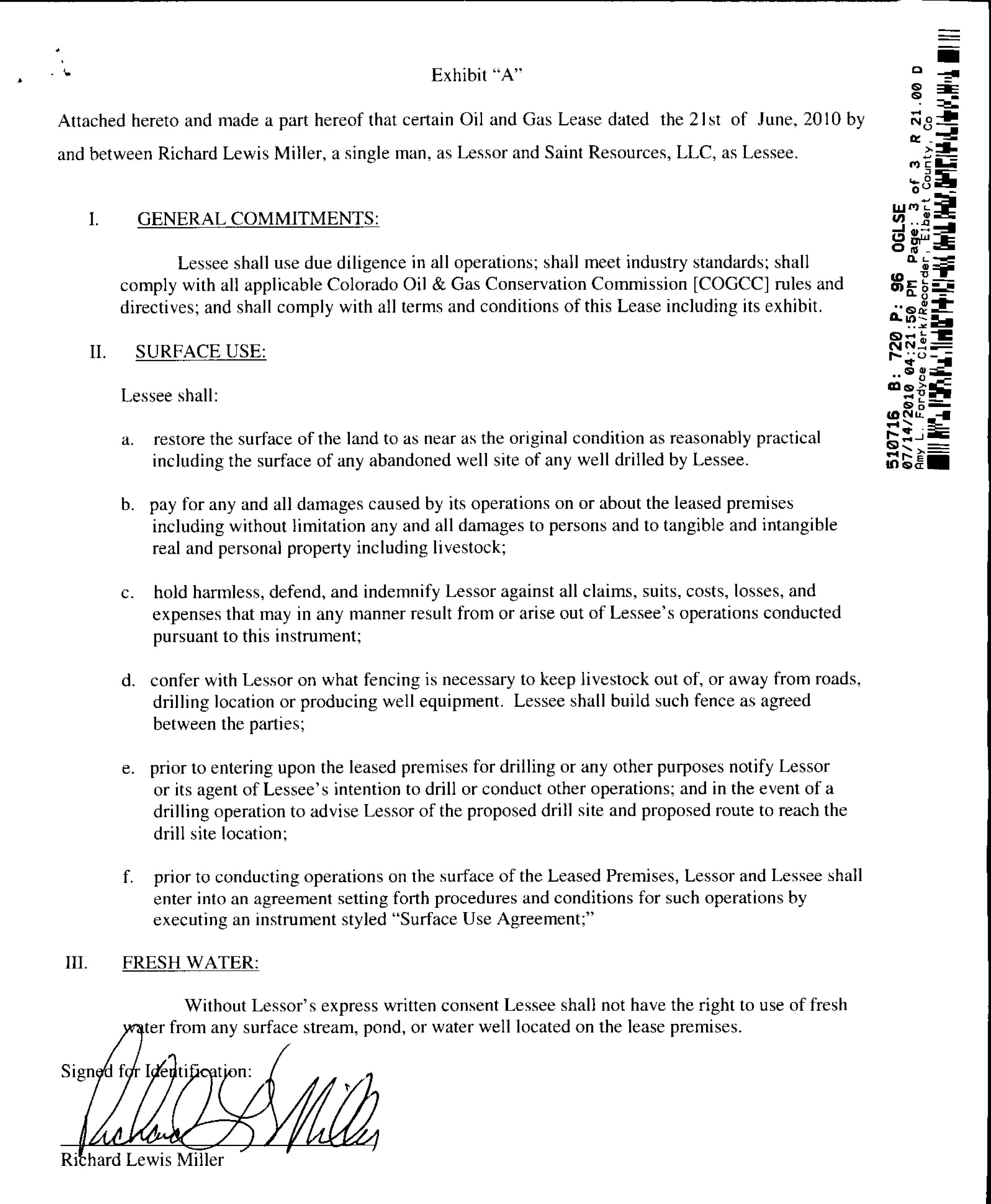Ep. 75 The national security state is the main driver of censorship and election interference in the United States. "What I’m describing is military rule," says Mike Benz. "It’s the inversion of democracy." pic.twitter.com/hDTEjAf89T
— Tucker Carlson (@TuckerCarlson) February 16, 2024
Next Summer’s Protest Recruitment Theater
Next summer’s protest recruitment theater [riots] to enlist more useful idiots willing to kill with conviction and moral superiority, is foreseeable. Democrat stronghold cities will bring in truckloads of OSB for patching things up after the Left finish the next round of recruiting, while law enforcement agencies collect data, and witness from the sidelines, the destructive [protected] speech of masked perps doing their worst.
The media will recruit for the revolution with free agitprop over the ostensible issues motivating the riots. But by the time the media realize that the issues are only bait to lure in the malleable young useful idiots, the revolution will have consumed them too and they’ll have lost the broadcast means to deliver any rebuttals to the new power.
When the revolution consolidates its power, the Bill of Rights won’t be worth the paper it‘s printed on. Utilizing the tools of persuasion and the artful linguistic constructs provided by the elastic English language – that can build a reason to support any proposition, however unrealistic – the BOR will melt away like a Spring snow, leaving only a shell, about which the state media will now fashion compliance directives.
But what if the people stood up and made law enforcement engage the law rather than the revolution?
What if the media was as focused on tyranny as it is on trannies?
What if parents took control of the curriculums their children were exposed to?
What if Americans stopped sniffing after every red herring dragged in front of them by the Left?
What if the failed communist dream was finally entombed in the last century where it belongs?
Yeah, next summer is foreseeable. But it doesn’t have to be.
Freedom. Use it or lose it.
Speculation in a crisis
On the subject of masks, gloves, breathing machines, and pharmaceuticals:
Clichés of Socialiism #71
“Speculation should be outlawed.”
In 1869 John Fiske, noted American philosopher, scholar and literary critic, wrote an essay on “The Famine of 1770 in Bengal” (The Unseen World and Other Essays. Boston: Houghton Mifflin, 1876), Pointing out that a major reason for the severity of the famine was the Prevailing law prohibiting all speculation in rice. The following is excerpted from that essay.
THIS DISASTROUS piece of legislation was due to the universal prevalence of a prejudice from which so-called enlightened communities are not yet wholly free. It is even now customary to heap abuse upon those persons who in a season of scarcity, when prices are rapidly rising, buy up the “necessaries of life,” thereby still increasing for a time the cost of living. Such persons are commonly assailed with specious generalities to the effect that they are enemies of society. People whose only ideas are “moral ideas” regard them as heartless sharpers who fatten upon the misery of their fellow creatures. And it is sometimes hinted that such “practices” ought to be stopped by legislation.
Now, so far is this prejudice, which is a very old one, from being justified by facts, that, instead of being an evil, speculation in breadstuffs and other necessaries is one of the chief agencies by which in modern times and civilized countries a real famine is rendered almost impossible. This natural monopoly operates in two ways. In the first place, by raising prices, it checks consumption, putting every one on shorter allowance until the season of scarcity is over, and thus prevents the scarcity from growing into famine. In the second place, by raising prices, it stimulates importation from those localities where abundance reigns and prices are low. It thus in the long run does much to equalize the pressure of a time of dearth and diminish those extreme oscillations of prices which interfere with the even, healthy course of trade. A government which, in a season of high prices, does anything to check such speculation, acts about as sagely as the skipper of a wrecked vessel who should refuse to put his crew upon half rations.
The Capture of Antwerp
The turning point of the great Dutch Revolution, so far as it concerned the provinces which now constitute Belgium, was the famous siege and capture of Antwerp by Alexander Farnese, Duke of Parma. The siege was a long one, and the resistance obstinate, and the city would probably not have been captured if famine had not come to the assistance of the besiegers. It is interesting, therefore, to inquire what steps the civic authorities had taken to prevent such a calamity. They knew that the struggle before them was likely to be the life-and-death struggle of the Southern Netherlands; they knew that there was risk of their being surrounded so that relief from without would be impossible; they knew that their assailant was one of the most astute and unconquerable of men, by far the greatest general of the sixteenth century.
Therefore they proceeded to do just what our Republican Congress, under such circumstances, would probably have done, and just what the New York Tribune, if it had existed in those days, would have advised them to do. Finding that sundry speculators were accumulating and hoarding up provisions in anticipation of a season of high prices, they hastily decided, first of all to put a stop to such “selfish iniquity.” In their eyes the great thing to be done was to make things cheap. They therefore affxed a very low maximum price to everything which could be eaten, and prescribed severe penalties for all who should attempt to take more than the sum by law decreed. If a baker refused to sell his bread for a price which would have been adequate only in a time of great plenty, his shop was to be broken open, and his loaves distributed among the populace. The consequences of this idiotic policy were twofold.
In the first place, the enforced lowness of prices prevented any breadstuffs or other provisions from being brought into the city. It was a long time before Farnese succeeded in so blockading the Scheldt as to prevent ships laden with eatables from coming in below. Corn and preserved meats might have been hurried by thousands of tons into the beleagured city. Friendly Dutch vessels, freighted with abundance, were waiting at the mouth of the river. But all to no purpose. No merchant would expose his valuable ship, with its cargo, to the risk of being sunk by Farnese’s batteries, merely for the sake of finding a market no better than a hundred others which could be entered without incurring danger. No doubt if the merchants of Holland had followed out the maxim Vivre pour autrui, they would have braved ruin and destruction rather than behold their neighbours of Antwerp enslaved.
No doubt if they could have risen to a broad philosophic view of the future interests of the Netherlands, they would have seen that Antwerp must be saved, no matter if some of them were to lose money by it. But men do not yet sacrifice themselves for their fellows, nor do they as a rule look far beyond the present moment and its emergencies. And the business of government is to legislate for men as they are, not as it is supposed they ought to be. If provisions had brought a high price in Antwerp, they would have been carried thither. As it was, the city, by its own stupidity, blockaded itself far more effectually than Farnese could have done it.
In the second place, the enforced lowness of prices prevented any general retrenchment on the part of the citizens. Nobody felt it necessary to economize. Every one bought as much bread, and ate it as freely, as if the government by insuring its cheapness had insured its abundance. So the city lived in high spirits and in gleeful defiance of its besiegers, until all at once provisions gave out, and the government had to step in again to palliate the distress which it had wrought. It constituted itself quartermaster-general to the community, and doled out stinted rations alike to rich and poor, with that stern democratic impartiality peculiar to times of mortal peril.
But this served only, like most artificial palliatives, to lengthen out the misery. At the time of the surrender, not a loaf of bread could be obtained for love or money.
Communism fails
From: W. Cleon Skousen, “The Naked Communist, Exposing Communism and Restoring Freedom”, pp. 386-8.
[sic] “The four major Communist basic beliefs – the heart and soul of dialectical materialism that pretend to provide a complete explanation for the whole universe – the reasoning which gives an excuse to the Communist for her revolutionary violence and amoral conduct:
- Everything is a product of accumulated accident. There is no design. There is no law. There is no God. There is only the force of nature which is right, good and natural.
- Human beings are only graduated beasts and therefore human life is no more sacred than that of an insect or an animal.
- There is no such thing as innate right or wrong. The ends justify the means. Ethics and morals are superficial and fraudulent. Communist morality is whatever serves the struggle.
- All religious superstition must be overthrown so people become fully conscious of revolutionary spirit and able to steal or kill when leaders command.”
Obviously, Communist beliefs cannot coexist with the American Constitution, cannot coexist with the fundamental values written into the Declaration of Independence, deeply offend the religious beliefs of the great majority of Americans, and deeply offend the civil, criminal, and common law principles of justice in American law and Western Civilization. An American Communist Party is a contradiction in terms. There is no reconciliation possible between the two systems.
Our Government is instituted among Men who derive their just power from the consent of the governed, and who rely upon the Laws of Nature and of Nature’s God that entitle us to the self-evident truths that all men are created equal, and that they are endowed by their Creator with certain unalienable Rights – among them [not limited to] life, liberty and the pursuit of happiness.
The Communist disputes the metaphysical existence of God, and upon that belief – for all metaphysical statements are beliefs – constructs a justified amoral system of human domination.
We don’t need to rely on supernatural vision into the metaphysical realm to answer the question of the existence of God to assess the fundamental value of Western Civilization vs. Communism. We have centuries of recorded history under American law [Western Civilization] and Communist dictatorships to dispositively assess the two systems.
Each have produced drastically different outcomes in elevating human conditions out of poverty, out of slavery, out of disease, out of ignorance, and out of misery.
By any measure, Communism fails its people – and not because it’s not done right. It fails because it replaces the consent-based modality of human relations with a suppression-based law of the jungle.
People do more, create more, accomplish more, and are much happier, in the exercise of their free will, than when they take orders from the muzzle of a gun.
That generations of young Americans have been publicly educated to ignore these fundamental truths may be the greatest tragedy of our time.
Delaware 4th of July Parade, 2017 (55th I think)
America, listen up
I had the great fortune to make a friend in Hong Kong last April from a random meeting while waiting for a table at a restaurant. Subsequently we visited one evening over a couple bottles of wine and a duck. We began to write each other. This is from his recent letter. The lesson to America couldn’t be more clear:
“Hong Kong is a small place. What has made Hong Kong a city actually serving the world as a genuinely global financial center are: the common law system in the city, English proficiency, a free vote, a free way of life, convertibility of the currency, simple and low tax regime – there is no value added tax (VAT) for exchange of goods, and personal income tax stands at only 12%. 99% of the population are formerly refugees escaping from Chinese Communism in the mainland.”
~
Christian roots of secularism
Larry Siedentop, “Inventing the Individual – The Origins of Western Liberalism”, 2014, p. 361.
“What is the crux of secularism? It is that belief in an underlying or moral equality of humans implies that there is a sphere in which each should be free to make his or her own decisions, a sphere of conscience and free action. That belief is summarized in the central value of classical liberalism: the commitment to ‘equal liberty’. Is this indifference or non-belief? Not at all. It rests on the firm belief that to be human means being a rational moral agent, a free chooser with responsibility for one’s actions. It puts a premium on conscience rather than the ‘blind’ following of rules. It joins rights with duties to others.
This is also the central egalitarian moral insight of Christianity. It stands out from St Paul’s contrast between ‘Christian liberty’ and observance of the Jewish law. Enforced belief was, for Paul and many early Christians, a contradiction in terms. Strikingly, in its first centuries Christianity spread by persuasion, not by force of arms – a contrast to the early spread of Islam.”
“No change is permitted”
“It takes people putting their thoughts and ideas together to actually accomplish something. These ideas must take into consideration the reality of the situations and the means to correct the problems.” Jerry Bishop, 6-11-14, The Prairie Times
Jerry wrote these words in a lead editorial where he also took exception to being labeled a leftist. Well if the shoe fits Jerry, you may as well put it on and lace it up. Look at the rest of the authors Jerry printed in this same Viewpoint edition of his fishwrap:
Paul Crisan, notorious planner, eco-green anti-business zoner, and leftist.
Robert Thomason, Democrat Party official, notorious leftist.
Jill Duvall, Democrat Party official, notorious leftist. (2 articles)
Anne Johnson, advises Republicans to “vote outside the party.”
Susan Shick, Democrat Party official, notorious leftist. (2 articles)
Name Withheld, advocates for totalitarian planning control.
Kelly Dore, “government’s role is to work with people to make their lives better.”
John Dorman, “commissioners have to manage the business of the county.”
Non-leftist viewpoints: None.
Not an individualist in the bunch, including Jerry. Not a hint of recognition in the whole lot of them that it’s the private sector who create wealth, provide jobs, and solve problems. These people share an obsession with all things collective and governmental.
Now let’s face it, government is the 900 lb. gorilla in the living room of Elbert County. There is no substantial private sector here so there’s little else to talk about in a local newspaper besides government. Government is the largest employer by far with the largest payroll in Elbert County.
It doesn’t matter which party controls here, government’s been used by all parties to keep Elbert County’s economy stuck in the 19th century from as far back as anyone remembers; and this will remain the case for the foreseeable future.
It would be so much more honest if all of these collectivists could just hang a sign out at the county border saying that Elbert County is a preservation zone where there will be no economic growth, no enabling of the private sector, no new jobs, and no changes. Perhaps they could purchase the right to name the county Pleasantville.
Just get rid of all the legal mumbo jumbo in county zoning, dump all the expensive lawyerly jargon that pays lip service to the illusion of property rights and constitutional liberties, and replace it with a simple sentence; “No change is permitted.” Put that on the sign at the county border.
Then all the leftists could go off to other battleground locals to community-organize and inflict their advocacy, and people would know before ever considering putting down roots here just what they’re in for.
Think of all the time and money this would save. All of the public meetings we now have with foregone conclusions – gone. All of the empty rhetoric from government officials and would-be government officials – gone. All of the legal work around the regulatory edges – gone. People in the private sector would still drive to town for work. The number of government employees could be cut way back. And Jerry would have to find something else to publish and write about.
Let’s stop kidding ourselves. The myth of American freedom in Elbert County is an expensive joke. Freedom, as an ideal, deserves better than this. If we’re not going to serve it, then we should at least stop sullying it.
Remember what nation it is whereof ye are
Charles Koch’s Free Society
A society of cowards, with A spoonfull of sugar
Eamonn Butler on Daniel Hannan
Rush covered this from Dr. Butler today. I had the good fortune to have a class with Dr. Butler at Hillsdale, a long time ago in a galaxy far far away.
Written by Dr. Eamonn Butler [2] | Monday 20 January 2014
the taboo of freedom
From the American Left, the Obama administration, and the Washington bureaucracy, one hears frequent lip service to freedom, but sees little substance about freedom in practice. Too often, a discussion of freedom begins and ends with the Constitution, whence the discussion should only begin. The Constitution establishes the essential foundation for free behavior, but it remains up to us to decide how to use that freedom. [Read more…]
James Madison, Property
29 Mar. 1792![]()
Papers 14:266–68
This term in its particular application means “that dominion which one man claims and exercises over the external things of the world, in exclusion of every other individual.”
In its larger and juster meaning, it embraces every thing to which a man may attach a value and have a right; and which leaves to every one else the like advantage.
In the former sense, a man’s land, or merchandize, or money is called his property.
In the latter sense, a man has a property in his opinions and the free communication of them.
He has a property of peculiar value in his religious opinions, and in the profession and practice dictated by them.
He has a property very dear to him in the safety and liberty of his person.
He has an equal property in the free use of his faculties and free choice of the objects on which to employ them.
In a word, as a man is said to have a right to his property, he may be equally said to have a property in his rights.
Where an excess of power prevails, property of no sort is duly respected. No man is safe in his opinions, his person, his faculties, or his possessions.
Where there is an excess of liberty, the effect is the same, tho’ from an opposite cause.
Government is instituted to protect property of every sort; as well that which lies in the various rights of individuals, as that which the term particularly expresses. This being the end of government, that alone is a just government, which impartially secures to every man, whatever is his own.
According to this standard of merit, the praise of affording a just securing to property, should be sparingly bestowed on a government which, however scrupulously guarding the possessions of individuals, does not protect them in the enjoyment and communication of their opinions, in which they have an equal, and in the estimation of some, a more valuable property.
More sparingly should this praise be allowed to a government, where a man’s religious rights are violated by penalties, or fettered by tests, or taxed by a hierarchy. Conscience is the most sacred of all property; other property depending in part on positive law, the exercise of that, being a natural and unalienable right. To guard a man’s house as his castle, to pay public and enforce private debts with the most exact faith, can give no title to invade a man’s conscience which is more sacred than his castle, or to withhold from it that debt of protection, for which the public faith is pledged, by the very nature and original conditions of the social pact.
That is not a just government, nor is property secure under it, where the property which a man has in his personal safety and personal liberty, is violated by arbitrary seizures of one class of citizens for the service of the rest. A magistrate issuing his warrants to a press gang, would be in his proper functions in Turkey or Indostan, under appellations proverbial of the most compleat despotism.
That is not a just government, nor is property secure under it, where arbitrary restrictions, exemptions, and monopolies deny to part of its citizens that free use of their faculties, and free choice of their occupations, which not only constitute their property in the general sense of the word; but are the means of acquiring property strictly so called. What must be the spirit of legislation where a manufacturer of linen cloth is forbidden to bury his own child in a linen shroud, in order to favour his neighbour who manufactures woolen cloth; where the manufacturer and wearer of woolen cloth are again forbidden the economical use of buttons of that material, in favor of the manufacturer of buttons of other materials!
A just security to property is not afforded by that government, under which unequal taxes oppress one species of property and reward another species: where arbitrary taxes invade the domestic sanctuaries of the rich, and excessive taxes grind the faces of the poor; where the keenness and competitions of want are deemed an insufficient spur to labor, and taxes are again applied, by an unfeeling policy, as another spur; in violation of that sacred property, which Heaven, in decreeing man to earn his bread by the sweat of his brow, kindly reserved to him, in the small repose that could be spared from the supply of his necessities.
If there be a government then which prides itself in maintaining the inviolability of property; which provides that none shall be taken directly even for public use without indemnification to the owner, and yet directly violates the property which individuals have in their opinions, their religion, their persons, and their faculties; nay more, which indirectly violates their property, in their actual possessions, in the labor that acquires their daily subsistence, and in the hallowed remnant of time which ought to relieve their fatigues and soothe their cares, the influence [inference?] will have been anticipated, that such a government is not a pattern for the United States.
If the United States mean to obtain or deserve the full praise due to wise and just governments, they will equally respect the rights of property, and the property in rights: they will rival the government that most sacredly guards the former; and by repelling its example in violating the latter, will make themselves a pattern to that and all other governments.

The Papers of James Madison. Edited by William T. Hutchinson et al. Chicago and London: University of Chicago Press, 1962–77 (vols. 1–10); Charlottesville: University Press of Virginia, 1977–(vols. 11–).
realism
what makes life worth living
“People need self-respect, but self-respect must be earned—it cannot be self-respect if it’s not earned—and the only way to earn anything is to achieve it in the face of the possibility of failing. People need intimate relationships with others, but intimate relationships that are rich and fulfilling need content, and that content is supplied only when humans are engaged in interactions that have consequences. People need self-actualization, but self-actualization is not a straight road, visible in advance, running from point A to point B. Self-actualization intrinsically requires an exploration of possibilities for life beyond the obvious and convenient. All of these good things in life—self-respect, intimate relationships, and self-actualization—require freedom in the only way that freedom is meaningful: freedom to act in all arenas of life coupled with responsibility for the consequences of those actions. The underlying meaning of that coupling—freedom and responsibility—is crucial. Responsibility for the consequences of actions is not the price of freedom, but one of its rewards. Knowing that we have responsibility for the consequences of our actions is a major part of what makes life worth living.”
Charles Murray, Coming Apart, 2012.
adult behavior
We have rights. As Americans we have the freedom to make agreements, to make promises, and to bargain with each other for mutual advantage. When we give a promise and receive something of value for it, we can use the courts to enforce those agreements. This is what free citizens do in a free country.
What citizens should not do in a free country is run like helpless children to the government for protection when each new challenge comes along.
Governments are made up of people no more smart or capable than you and me. What they have is rigid, uniform, arbitrary, black and white LAW, and power. People are flexible, diverse, and subtle.
Citizens engaged in working the problem to make our land better cannot be sufficiently anticipated by a rigid code of government regulations, no matter how artfully drawn.
The Founding Fathers understood this so they wrote a Constitution of negative law to limit the power of government and leave men free to live and work. They also knew that citizens in a pure democracy would push for ever more government to the detriment of freedom and our republic. At the planning commission meeting last Thursday, many were there proving the point.
Citizens can and will protect their own interests and their own resources better than government can, and that applies to all issues including: safety, the environment, health, maximum economic benefit, effective utilization, and preservation of all of our resources.
Citizens do this because it’s in their interest to do so. Government is merely a third party with no stake—government is just not as motivated to protect our property as we are.
Don’t give them more power over us. It’s a poor bargain. You won’t get the protection you expect and they won’t ever relinquish the power they take. You will burden us forever with more expensive, unproductive, and arbitrary bureaucracy.
This code of oil and gas regulations presumptively treats every citizen in Elbert County like a criminal. We are not criminals, and we are not merely applicants. We are free American citizens who can write our own contracts and protect ourselves. And we don’t need a ruler to tell us what we can do.
Look how this oil and gas lessor protected his interest. He wrote a one page addendum to his lease that fully protects his interests. This is how adults solve problems responsibly. Responsible citizens don’t run to government planners and clamor in public meetings for 60-page monstrosities of zoning law to provide environmental lawyers and planners with an endless pool of aggrieved litigants.
The American Community Survey
U.S. Supreme Court
ICC v. Brimson, 154 U.S. 447 (1897)
Interstate Commerce Commission v. Brimson
No. 883
Argued April 16, 1894
Decided May 26, 1894
154 U.S. 447
“Power given to Congress to regulate interstate commerce does not carry with it authority to destroy or impair those fundamental guarantees of personal rights that are recognized by the Constitution as inhering in the freedom of the citizen.”
“The inquiry whether a witness before the Commission is bound to answer a particular question propounded to him, or to produce books, papers, etc., in his possession and called for by that body, is one that cannot he committed to a subordinate administrative or executive tribunal for final determination. Such a body could not, under our system of government and consistently with due process of law, be invested with authority to compel obedience to its orders by a judgment of fine or imprisonment.”
“Neither branch of the legislative department, still less any merely administrative body, established by Congress, possesses or can be invested with a general power of making inquiry into the private affairs of the citizen. Kilbourn v. Thompson,
Page 154 U. S. 479
103 U. S. 168, 103 U. S. 190. We said in Boyd v. United States, 116 U. S. 616, 116 U. S. 630 — and it cannot be too often repeated — that the principles that embody the essence of constitutional liberty and security forbid all invasions on the part of the government and its employees of the sanctity of a man’s home and the privacies of his life. As said by MR. JUSTICE FIELD in In re Pacific Railway Commission, 32 F. 241, 250, “of all the rights of the citizen, few are of greater importance or more essential to his peace and happiness than the right of personal security, and that involves not merely protection of his person from assault, but exemption of his private affairs, books, and papers from the inspection and scrutiny of others. Without the enjoyment of this right, all others would lose half their value.”
Now, see:
The American Community Survey
~
extremes
We were downtown last night, taking our son to visit with the USC Marching Band who are in town for the CU game this evening. As it turned out we spent an hour in a small v.i.p. setting with Dr. Bartner, his wife, and a dozen or so leaders of the USC program, who gave us a presentation of the amazing history of the USC band and Dr. Bartner’s career, with the experience capped by hearing some warm up routines with a contingent of senior players brought here for the game. All in all, a superlative experience we had not expected – we looked through a window into a truly amazing world that any kid would give his eye teeth to join.
So, it was a rare occasion for us downtown and coincidently the occupation is the subject of probably half of the broadcast TV news and talk radio shows. Michael Moore was in town today to pump up the faithful, and we decided to cruise Broadway in front of the capitol on our way home to see what all the fuss is about.
We saw thirty or forty people huddled around each other on the sidewalk directly across the street from the capitol, and about a half a block of various sized piles of messy human belongings, and a fair amount of trash. It looked like a refugee camp, very sad, even pathetic. The righteous democratic outpouring we’re bombarded with by the media is rooted in a fiction, a delusion of grandeur.
The tea party had significant numbers in the streets across the country and in Washington and the media all but ignored them. This scamming bunch of several dozen pathological malcontents is getting enough media coverage to make it look like the second coming. Go see for yourself. As Gertrude Stein once wrote about Oakland, “there is no there there.”
But the Greatest of These Is Freedom
But the Greatest of These Is Freedom, The Consequences of Immigration in Europe, By Hege Storhaug
Introduction By Bruce Bawer (translator from the Norwegian edition.)
In recent decades, as Hege Storhaug notes in these pages, those of us fortunate enough to live in the Western world have enjoyed a degree of freedom unparalleled in human history. This freedom did not come easily. It is the product of centuries of struggle — a product of the Renaissance, of the Protestant Reformation, of the seventeenth-century Enlightenment, and of a long series of hard-won reforms in various countries, of which the most notable and influential were probably the American Revolution and American Declaration of Independence, which in 1776 affirmed the then remarkable notion that human beings — every last one of them — had a right to the pursuit of happiness.
Among the things that freedom frees up are human creativity and innovation. Thus freedom has brought with it a remarkable array of technological developments and cultural achievements as well as unprecedented levels of prosperity. [Read more…]

























